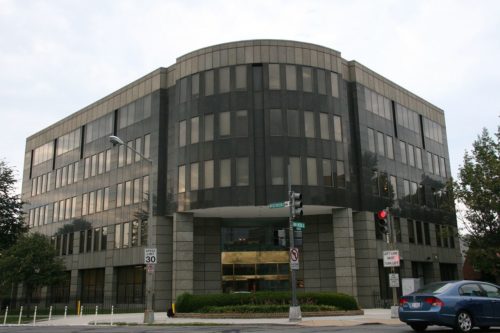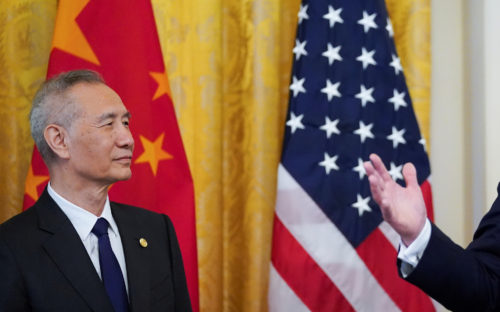Trade war, day 195: Chinese tourism to U.S. still growing

The Chinese government’s warning about travel to the U.S. issued in July last year had no effect on the country’s outward-bound tourists:
- New York City announced today that it attracted more Chinese tourists than ever in 2018: “The number of tourists from China rose slightly to 1.1 million [in 2018], up from 1.04 million [in 2017],” per the New York Times (porous paywall).
- Los Angeles County also saw record Chinese tourism, with an even bigger bump in 2018 versus 2017: “Visitors from China set an all-time high of 1.2 million travelers, a 6.9% increase from the previous year, making Los Angeles County the top-ranked U.S. city for Chinese travelers,” per the Los Angeles Times.
- In the early months of the trade war, it appeared that Chinese tourism was taking a hit, but by November, the U.S. Commerce Department was projecting a slight (2 percent) increase in overall tourism flow from China.
- The final numbers for 2018 are not yet in, but if New York and LA are any indication, tourism may prove to be among the most reliable economic links between the U.S. and China.
Other cross-border industries, of course, have been majorly hit by the trade war. Most directly affected as a result of tariffs is trade in soybeans, cars, oil, and other products, which plummeted in the second half of 2018 and have only recently begun to rise again, though not yet to pre-trade-war levels.
Meanwhile, the increased investment restrictions as a result of the Foreign Investment Risk Review Modernization Act (FIRRMA), passed last August, has “made Chinese investment in any form of technology company virtually impossible,” China Law Blog writes.
- Purchases of U.S. firms by Chinese ones totaled just $3 billion in 2018, according to Mergermarket, 95 percent down from its peak in 2016.
- Foreign direct investment in the U.S. by China was also down 90 percent from 2016 to 2018, data from the Rhodium Group shows. Such investment in 2018 reached just $4.8 billion, whereas it totaled $29 billion in 2017 and $46 billion in 2016, CNBC reports.
Other links today related to U.S.-China relations, and China’s technological and economic reach:
- U.S. releases “China Military Power” report
DIA Chinese Military Power Report / US Naval Institute News
The full text of the 140-page report is available here.
US defense agency says PLA ‘on verge of fielding some of the most modern weapon systems in the world’ / SCMP
“Beijing’s enormous military strides in recent years were in part achieved by laws that require foreign companies to share technological know-how in exchange for access to China’s vast market, said the report…”
China says US claims it uses forced technology transfer to boost military are ‘absurd’ / SCMP
“China has described a Pentagon report that accused it of using forced technology transfers to bolster its military capabilities as ‘extremely unprofessional and absurd.’”
Pentagon warns of global power play behind Chinese projects such as Belt and Road Initiative / SCMP - Beijing gets busy on a foreign investment law
China speeds long-sought foreign-investment law / WSJ (paywall)
“Chinese lawmakers are accelerating work on a long-sought foreign-investment law, as Beijing seeks a hurried concession to the U.S. The national legislature’s executive committee on Wednesday announced a previously unscheduled session for Jan. 29 to 30 with the draft law as the top item, less than three weeks after reviewing the current draft in a routine session.”
“Foreign businesses have expressed concern that the draft, which vows to protect foreigners’ intellectual-property rights and bans technology transfers — two areas of top interest to Washington — glosses over details and contains vague phrases that companies think could be used against them.”
- Some U.S. businesses to be granted exemptions for any further tariffs
USTR promises exclusion process for higher tariffs if China talks fail / Reuters
“‘If the duty rate on the $200 billion tariff actions is raised to 25 percent, USTR will initiate an appropriate exclusion process,’ Lighthizer said in a letter dated Jan. 11 to pro-trade Republican Senator Pat Toomey.” - Germany-China financial ties
Germany, China to sign deals to deepen cooperation in financial sector: document / Reuters
“The deals are part of German Finance Minister Olaf Scholz’s efforts to convince China through dialogue that opening up its economy for foreign businesses is in its own interest.” - EU to bend the rules to compete with China?
EU explores ways to counter China’s state-backed capitalism / WSJ (paywall)
“Concerns about China’s state-backed capitalism are prompting the European Union to reassess its competition rules with an eye to allowing large mergers or a more muscular response to foreign competitors.”
“The rethink — the subject of an unusual debate among senior officials Tuesday — has been prompted by the proposed merger of Europe‘s two rail giants. Siemens AG of Germany and Alstom SA of France in 2017 announced plans to merge to better compete with Chinese rail behemoth CRRC Corp., the world’s largest rail supplier. Several European governments have objected to the linkup because it would limit competition within Europe.” - Israel
US official cautions Israel over Chinese investments / Reuters
“A U.S. official [Deputy Secretary of Energy Dan Brouillette] cautioned Israel on Wednesday over investments from China, citing cyber-security concerns and the prospect of Israel’s allies limiting intelligence-sharing with it.” - Taiwan
III to bar China-made devices from accessing its internal network / Focus Taiwan
“The Institute for Information Industry (III), a government-sponsored high-tech research group, said Wednesday that users of China-made communications devices will no longer be allowed to access its internal network, starting in May at the earliest, due to security concerns.”
Huawei products banned by Taiwanese tech institute as island targets Chinese brands / SCMP - General U.S. worries about China
The churchgoing patriot who spied for China / BBC
“U.S. officials say China is trying to influence US policymakers, steal secrets and spy on the US government. But how? The story of Kevin Mallory, a man who seemed to lead a typical suburban life in Virginia, provides the answer.” - Commentary
China’s leaders must learn from Soviet Union’s fatal mistakes, says leading reformer / SCMP
“One of the fatal errors [made by the Soviets] is that they followed a political system with highly centralized power. Not every socialist country does that,” said Hu Deping, son of the late reformist General Secretary Hu Yaobang, whose death ultimately led to the infamous Tiananmen Square crackdown.
“Another [mistake] was their rigid economic system. By the same token, not all socialist countries must practice a planned economy,” he said.
Previously in The China Project’s trade war coverage:
Trade war, day 194: Lighthizer doesn’t see ‘any progress,’ but will meet Liu He






